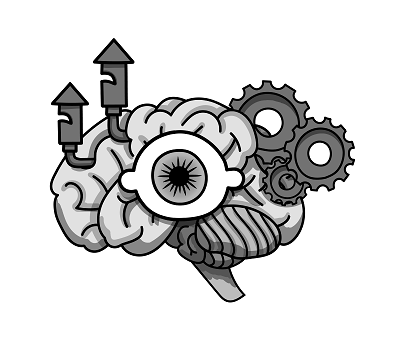Dr. Angela Collier plays the Binding of Isaac: Rebirth and talks at length about what went wrong with string theory, and how that affected science communication.
I think she leaned a bit too heavily onto the notion that string theorists, as a whole, were lying. I think more likely they genuinely thought they were on to something. They may have been wrong but they didn’t think they were wrong. A lie is deliberate misinformation, not simply being mistaken.
Like, ok, at first? Sure, I can go with “it’s not a lie if you actually believe it,” in 1985 or even 1995. But by 2010? Come on. And then in 2020, to be like “Well, I mean, I never specifically said I believed in it, just that, you know, it was a thing…” is so gross. It’s like some shit my ex-wife would have said after a three-day-long running argument about some basic fact of the universe.
That’s 1 string theorist, Brian Greene. It is absurd to call all string theorists liars. Are all psychologists liars because they had a reproducibility crisis?
This was a half-cocked and not through rant that others and blames a whole group of hard working physicists just because they were wrong. This kind of rant has no place in the scientific process or science communication.
Back in the late-80s or early-90s, I remember OMNI Magazine ran an interview with a researcher of veracity in science publications as a topic, don’t remember anything but a whopper of a quote in which he said that around a third of science papers fudge the numbers, even if just a little bit, to make them fit the hypotheses.
Which is why the funding mechanism of science is so profoundly unscientific. Funding must be based on the quality of the experimental process, not positive results.
I’d go further, and say that most scientific papers are profoundly unscientific: without the data and analysis process they base their claims on, most papers are no different than just saying “believe me, I’m a scientist”.
There are some honorable exceptions, of papers which publish accompanying data and the tools they used to process it, but the vast majority don’t.
The fact that negative results don’t get published at all, is just disrespecting the word “science”. One of its basic premises is that of falsability, so proving a theory wrong, is just as valuable as proving a different one right.
I don’t normal watch YouTube (especially for this long) and I especially don’t watch people play games, but… Ive been wondering why I don’t hear about String Theory any more… and I’ve owned Binding of Isaac and have yet to play it. So I thought, why not!?
I was actually surprised by how interesting I found this. Dr Collier communicated some things I’ve been curious about while also teaching me several new things. The game added a fun element, but I’m afraid it’s probably going to remain dormant on Steam for a long while longer now. 😁
Anyway, thanks for the share.
deleted by creator
Found my new favorite science communicator, she did such an awesome job here! I’ll have to check out the rest of her videos because she seems to cover a lot of different science topics.
I’ve been watching a lot of her videos lately! I found the one on Gell-Mann amnesia to be really interesting and linked it here the other day; maybe a good one for a next watch if you haven’t picked yet.
Fun fact, Michael Crichton (that one) coined that, Gell-Mann amnesia after Murray Gell-Mann, who had nothing to do with it.
Less fun fact, Micheal Crichton was an active climate change denialist.
In one public debate his team argued so convincingly that the audience went from 57% believing climate change was a global crisis down to 46% after the debate.
deleted by creator
I didn’t watch this video but I suspect the sentiment is similar to Sabine’s (I highly recommend her channel)
I love Sabines channel. Fantastic communicator of advanced ideas and you wouldn’t necessarily expect it from the tone of her voice while she talks but her humor is top notch too
Then I regret to inform you that Sabine has some not so great views on trans issues
It seems a little over-the-top to be angry at physicists from 30-40 years ago for being wrong.
Scientists aren’t priests, and science isn’t a religion. Expecting scientists to always be right, always be humble, and everything they add to “science” to be sacred and correct and immutable is a little silly.
This is how science works. It’s messy. It goes in delicious looking directions that turn out to be dead ends. Humans create ideas (with all the hubris and errors of being human) that other humans test (with all the hubris and errors of being human.)
I was struck by how angered she was by physicists thinking they were right and saying “we’re doing something real”. They were doing something real: they were exploring and testing an idea. Without that work, the idea could never have been proved wrong.
(My personal “string theory” is that string/cordage is humanity’s greatest invention, and my user name is a joke.)
I do think this is more an issue with science communication broadly than string theory specifically - every field has its own examples, and medicine is notorious for it - but she is right that scientific researchers (the subject matter experts) have a responsibility to accurately communicate their work when speaking to the public.
Its one thing for an enthusiast to inadvertently oversell a concept to the public as fact because they are excited and only understand at only a basic level. It’s another entirely for someone who’s been researching that concept for 30-40 years, with the express intent of proving or disproving its validity, to oversell it as fact when they’re whole job is to be intimately familiar with its shortcomings. They, of all people, should know better - and that means they have a responsibility to do better.
Science does get messy, by design, but it is the duty of those who communicate their science to be honest about that messiness, not mask it by unfounded statements to sell their ideas to people that don’t have the research expertise to spot the falsehoods.
deleted by creator













